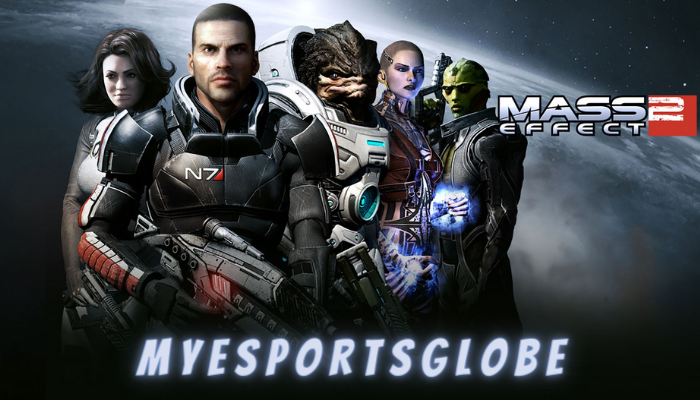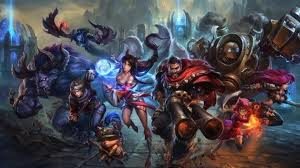What makes a good trilogy? The answer is simple: the first part sets the rules. The second part breaks them. In mostly unexpected ways. And part 3? Well, the Canadian developer Bioware is not there yet with Mass Effect, but Mass Effect 2 already adheres to this principle, which is important for cult-suspicious hit series:
The centerpiece of the Mass Effect trilogy is darker, more adult and considerably more action-packed, moves away so unexpected and radical from what the fans know from part 1. Despite all the breaks in tradition, Bioware’s second all-adventure creates a familiar, downright pleasantly nostalgic feeling just a few seconds after clicking on “New Game”: Despite all the innovations, Mass Effect 2 is a real Mass Effect through and through – welcome home !
Storyline
While the Normandy, the ship of your hero Commander Shepard, is attacked by an unknown cruiser, we rush through a burning inferno to the bridge. We just managed to convince the pilot Jeff “Joker” Moreau to abandon the ship when a violent detonation hit the hull tears, Shepard threw into space and we had to watch Normandy fall apart.
As you can see, Mass Effect 2 – unlike its predecessor – doesn’t have to take long to establish characters and introduce the story. This is precisely why you should remember the predecessor from 2008 well. It is true that this time there is again a comprehensive journal about the planets, races and social and political circumstances of the Mass Effect universe.
But why characters or alien races appear and how they react in certain situations can only be fully understood by those who have played through Part 1. One cannot criticize that, because given the trilogy concept, such a narrative structure is quite legitimate.
The Characters
In addition to the often surprising return of old colleagues (and opponents), it is above all the newcomers to the Mass Effect cast that add interesting nuances to the plot.
There is, for example, Miranda, whom you encountered in the fast-paced tutorial and who works for the underground organization Cerberus mentioned in the previous section. What drives the self-confident and opaque woman and how she feels about Shepard (or pretends to be) creates an exciting mood, especially in the dialogues.
Bioware succeeds in doing without typical and therefore often boring clichés completely. And although you come across a wide variety of characters at every corner, each one has an interesting and believable background. The result: In Mass Effect 2 you always have the feeling of interacting with living beings instead of a collection of polygons and AI routines.
Into The Void
With the Normandy you travel again over an extensive star map to distant planets, space stations and jump gates. Bioware has revised this card for Mass Effect 2 at least a little. For example, percentages on all systems now show how many planets you have already explored – a banal feature, but it was sorely missed in Mass Effect 1! In addition, it is now written on every system, every station and every planet whether you have an active quest there.
Completely superfluous, however: Flights between systems now consume fuel. When it’s all over, you have to go to the depots to refuel. A pointless feature, because it only ensures that you return to depots regularly, which extends the game time, but does not benefit the fun of the game.
The new probes that are fired on planetary surfaces to collect resources are similarly freed from their purpose. If the probes are used up, you simply have to buy new ones in depots – you could have saved yourself that too.
While the predecessor mainly visited monotonous, dreary places, Mass Effect 2 impresses with a downright lavish amount of well-designed, varied locations: The dark gangster bastion Omega, for example, where you search through dirty slums, quarantine zones and wicked night clubs. Other missions lead to research facilities and mine shafts, to space stations, prison ships and much more.
Although most of the levels are tightly structured and there is hardly any space to explore, Bioware succeeds again in spreading a believable and inviting universe in front of the player – the great graphic design of the levels contributes a lot to this.
Also this time there are no more annoying long elevator journeys, instead you get to see a nicely animated loading screen every now and then. At times, however, the pace of the game seems a bit too hasty: Mass Effect 2 is so crammed with different locations that with many you wish you could explore them a little longer and more thoroughly, especially in side missions.
After all: Bioware has deleted the nasty vehicle passages from Mass Effect 1, at least for the main game – a new ground vehicle will only be delivered via DLC and will therefore not be considered in this test. If you want to know how well Bioware has the used Unreal Engine 3 under control, you will find it here: In the article Mass Effect 2 in the technology test plus comparison between Mass Effect 1 and 2 from PC Games Hardware you can find out everything about the technology of the game.
Side Missions : Short and Sweet
On the star map you not only search planets for resources, but also side quests. To do this, zoom in to a planet on the star map and briefly move a target cursor over the round surface until a signal lights up – the voluntary side mission is immediately available.
This time, these missions are much better and more creative than in the first Mass Effect: One leads, for example, to a stranded spaceship that lies restlessly on a cliff and threatens to slide into the abyss. Shepard now has to work his way through the rubble to reach the on-board computer. Meanwhile, the wreck is rocking up and down more and more threateningly until it actually falls down in the end.
A welcome change that is over after a few minutes of play – many of the side jobs are extremely short!Some of them are also far too simple. In a mission, for example, you don’t have to do anything other than follow a robot for a few minutes and feed it with batteries every now and then.
Rather boring! In return, the side missions are graphically beautiful and varied: fog-shrouded valleys, jungle levels, junk dumps and much more make you forget the dreary planetary surfaces and monotonous interior levels of the first Mass Effect.Scrap dumps and much more let you forget the dreary planetary surfaces and monotonous interior levels of the first Mass Effect.Junk dumps and much more let you forget the dreary planetary surfaces and monotonous interior levels of the first Mass Effect.
The Dialogues
As you know from the first part, you will also spend a lot of time talking in Mass Effect 2. That sounds unspectacular, but after a short time it develops an unprecedented pull.
Similar to Dragon Age Origins, you always have the choice in the consistently well-written dialogues to answer diplomatically, neutrally or aggressively, which not only adds depth to the game, but also often steers quests in different directions. Overarching events or even the end cannot be influenced by this. New: You can have the Commander start particularly effective (good as well as bad) attempts to convince you in predefined moments – signaled by a brief display.
These lavishly animated insertions in short cutscenes make the already gripping word battles a lot more dynamic and reinforce the feeling of not just clicking through linear conversations. Bioware has also technically improved the intensity of the discussions. Compared to Mass Effect 1, the program selects more exciting perspectives, cuts detailed shots (e.g. of the hands or eyes) in between and underlines the respective mood with appropriate camera shots.
Combat in ME2
In Mass Effect 2 there is not only talk, but also shooting, and that much more often and faster than in the first part. Although you are still fighting from a staggered shoulder perspective and with two AI-controlled colleagues at your side, the search for cover and the subsequent elimination of the opponents with targeted bursts of fire are now more in the foreground.
Two innovations also increase the shooter share: On the one hand, Shepard heals himself if he is not being shot at, and on the other hand, the opponents now have hit zones.
The downside of the action-oriented game principle: You can tell from the level design. Boxes, containers or waist-high barriers placed in front of your troop of heroes are a guarantee for a lot of hostile maze that will just turn the corner. If a room lacks such cover options, the weapon will certainly remain silent. The poor enemy AI can also be improved.
Every now and then the opponents afford dropouts in their choice of cover or hide themselves right next to highly explosive barrels. Despite these shortcomings, the effect-rich shooting is a lot of fun, which is due to the catchy mouse and keyboard controls as well as your cool colleagues who fight largely independently, position themselves sensibly and use talent cleverly.
Miscellaneous
Against the feeling of paralysis that gradually crept into the player, even the heroes’ improvised small talk or the radio reports clattering from the elevator loudspeakers did not work. Although you sometimes use elevators in Mass Effect 2 (especially on the now larger Normandy), the waiting times are now pleasantly short.
Bioware has also corrected most of the other technical flaws, such as the piecemeal structure of the environment after loading a game. On the other hand, Mass Effect 2 plagues a number of noticeable bugs that did not exist in the first part. Nevertheless, the series shows positive trends in terms of technology.
Especially the lighting and particle effects now look a bit nicer. The characters and textures also got more details. For Mass Effect 3 we would still like a new graphics framework, because the Unreal Engine 3 is now showing its age. But maybe Bioware will also take heed of the third rule for a successful trilogy: The finale has to pop!
Conclusion
The problem with Mass Effect 2 isn’t that it feels any more like a shooter. Hey, it’s fun to throw a combat robot in the air and then sizzle and atomize it at the same time! The problem is that, first of all, this action doesn’t feel as intense as in thoroughbred gun porn – at some point a routine that can be paused reigns: break shield, flatten opponent, next please. I was hoping for more tactics.
But secondly, it is even more important that this is not a qualitative substitute for the omission of some role-play components and the lack of progress. With this considerable adventure BioWare has developed technically, but not in terms of content – the cities remain small and sterile, the residents lack credible reactions, there is a lack of real stimulus to explore, the career has been neutered.
And the proportion of those missions in which you have to combine or research is shockingly low. Here an imbalance has been created in the game design that devalues the futuristic odyssey as a role-playing game. In the first five hours you are still curious because there is still a mystery hanging over the game – but then a lot turns out to be a facade.
Most planets remain vile suppliers of raw materials, there are no more vehicles and the lengthy upgrading of Normandy is practically for them Cat. Of course, this is about criticism at a high level: what you experience in terms of acting achieves a virtual theater level, as in Dragon Age – Subject Zero in particular deserves an Oscar.
This game still breathes the ingenious dialogue air, the excellent character drawing and the tension of the decision! It also takes you into a huge universe that you can travel freely for almost 35 hours. All of this makes for really good entertainment, especially since some of the little stories about the crew members are terrific.
You can find more of such articles at MYESPORTSGLOBE
Follow our Social media handles for more excision eSports News Instagram Twitter Facebook






